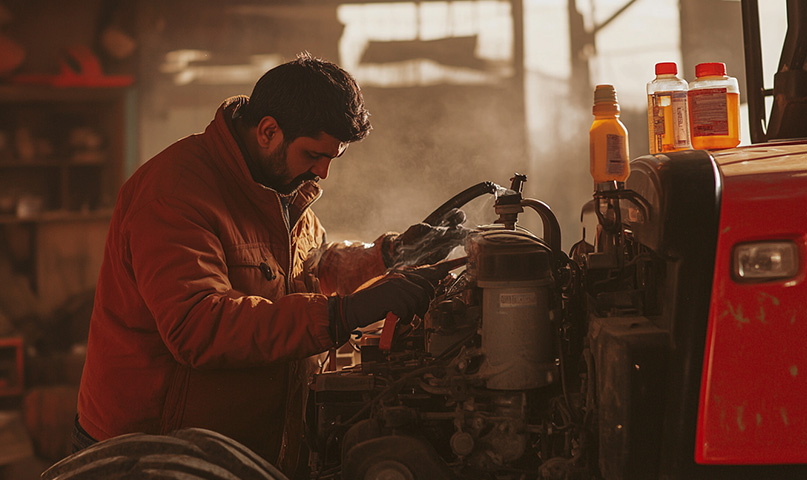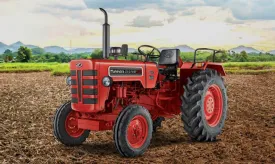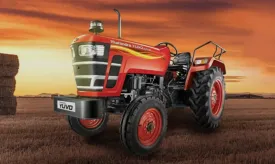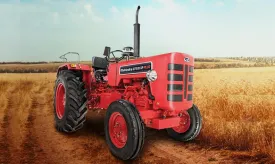Compact tractor engine care tips for long-term performance
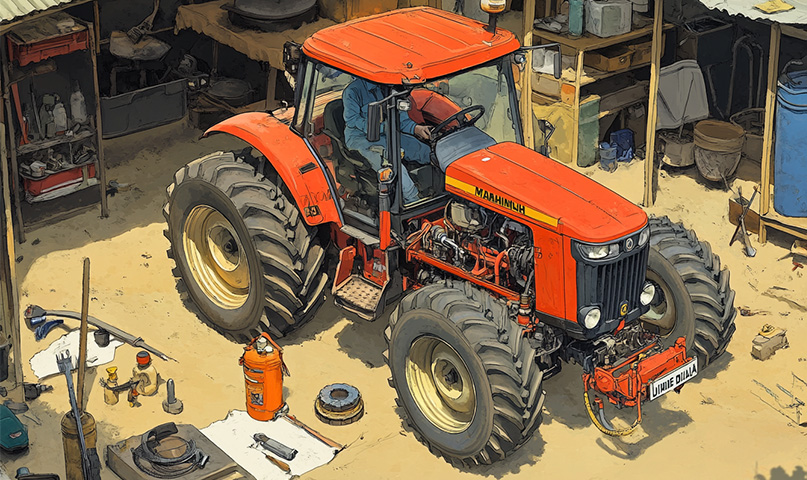
Introduction:
Whether you're managing a small farm, landscaping business, or a large property, your compact tractor is a vital tool that works hard year-round. To keep it running strong for years to come, regular engine care is essential. Just like a car engine, your tractor’s engine needs routine maintenance and attention to prevent wear and costly repairs.
Here are some expert tips to help you maintain your compact tractor engine and extend its working life.
1. Follow a regular maintenance schedule
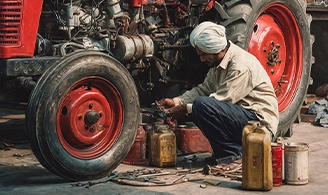
Routine maintenance is the backbone of engine longevity. Most tractor manufacturers recommend service intervals based on engine hours. Typically, engine oil and filters should be changed every 100–200 hours, but always refer to your owner’s manual for specifics.
- Oil changes are especially important for diesel engines that can accumulate sludge and soot.
- Replace oil filters when changing oil to prevent contaminants from circulating.
2. Clean and replace air filters
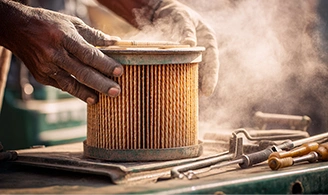
A dirty air filter can choke your engine, reducing efficiency and causing unnecessary strain. In dusty environments, it’s not uncommon to need air filter service more frequently.
- class="imgPointers"
- Inspect the air filter every 50 hours or sooner in dusty conditions.
- Replace when clogged or damaged. Never operate your tractor without one.
3. Use Clean fuel and care for the fuel system

Poor-quality or contaminated fuel is one of the quickest ways to damage an engine.
- Always use fresh, clean fuel and store it properly.
- Drain water separators and replace fuel filters regularly.
- Add a fuel stabilizer if storing the tractor for an extended period (30+ days).
4. Monitor coolant levels and condition

Overheating can cause serious engine damage. Proper coolant levels and quality help regulate temperature and prevent corrosion.
- Check coolant before every use, especially during summer or heavy workloads.
- Flush and replace coolant every 1–2 years or as recommended.
5. Inspect belts, hoses, and seals
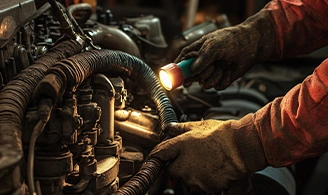
Worn-out belts or cracked hoses can cause engine failure or overheating.
- Look for cracks, leaks, or signs of wear.
- Replace components before they fail — prevention is cheaper than repair.
6. Take care of the battery

The engine relies on the battery to start, especially in cold conditions.
- Keep terminals clean and corrosion-free.
- Check electrolyte levels and charge regularly if not in use.
7. Keep the engine clean
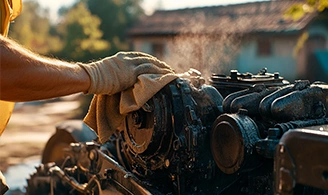
A clean engine is easier to inspect and less likely to overheat.
- Wipe off dust, grease, and oil regularly.
- Avoid high-pressure washing near sensitive components.
8. Don’t ignore the warning signs

Engines often give clues before they fail. Be alert for:
- Unusual noises or vibrations
- Excessive exhaust smoke
- Overheating or sudden fluid loss
- Difficulty starting or reduced power
Catching issues early can save you thousands in repairs and downtime.
9. Keep a maintenance log

Documenting oil changes, filter replacements, inspections, and repairs helps you stay on track. It’s also valuable if you ever sell your tractor, as it shows the engine has been well-maintained.
10. Proper storage during the off-season
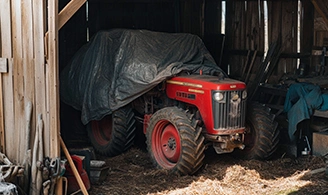
If you’re not using your tractor over the winter or during certain months:
- Store it in a dry, covered area.
- Disconnect or charge the battery.
- Run the engine every few weeks to circulate oil and prevent part seizure.
Conclusion:
Your compact tractor is a big investment — treat it like one. Regular engine care not only improves performance but also saves you from unexpected breakdowns and costly repairs. By following these simple yet effective tips, your tractor will continue to be a reliable workhorse for many years to come.










